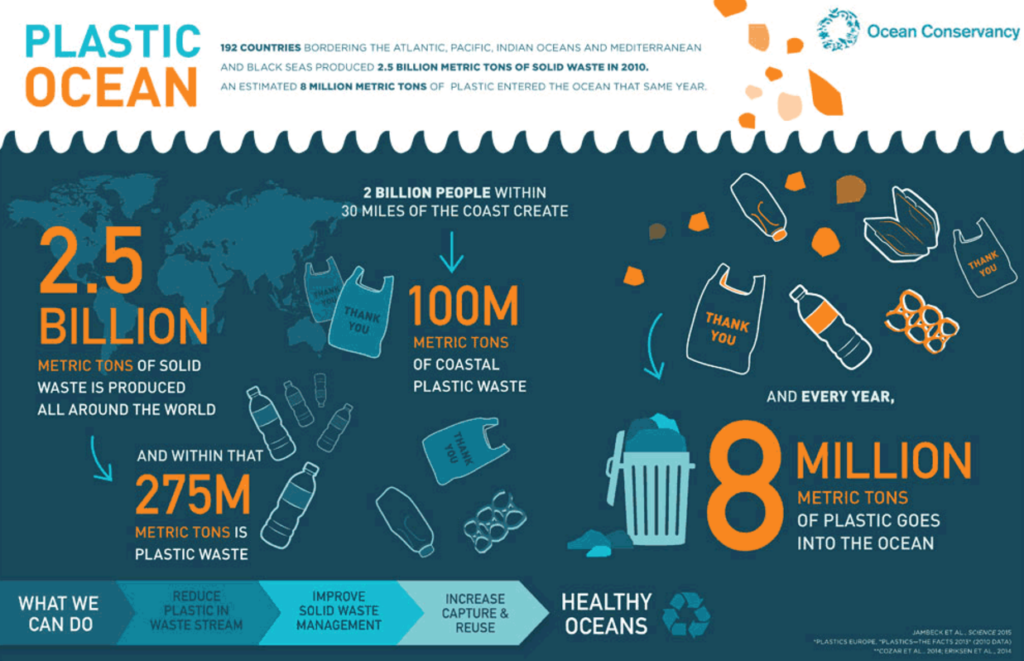Week 9 ✩ Materials
For this week’s debate, I was placed on the side of against for the theme exploring the concept of humanity falling in love with plastic again.
This topic is really relevant for me, as my studies in my current MA Illustration project emphasizes the relationship between humans & the natural world, focussing on how the environment affects the human mind positively. Plastic waste is something I encounter in my daily life – when visting these environments in person, the pollution really interrupts the serenity of the scene I’m trying to depict. It’s difficult to show the restorative affects of nature when it’s destroyed by human-made waste.
 There is so much plastic waste existing in the environment already before we should even think about falling in love with plastic again. An estimated 8 million metric tons enter the ocean every year – harming marine life & entering the food chain through ingestion of microplastics. The World Economic Forum conducted a 2016 study that showed if we kept at this rate, plastics would outweigh fish by the year 2050. This is an absurd statistic, it makes me wonder is plastic really worth disrupting various natural ecosystems simply because it’s a cheap material that can be replaced with many different materials?
There is so much plastic waste existing in the environment already before we should even think about falling in love with plastic again. An estimated 8 million metric tons enter the ocean every year – harming marine life & entering the food chain through ingestion of microplastics. The World Economic Forum conducted a 2016 study that showed if we kept at this rate, plastics would outweigh fish by the year 2050. This is an absurd statistic, it makes me wonder is plastic really worth disrupting various natural ecosystems simply because it’s a cheap material that can be replaced with many different materials?
Plastic in the Ocean Infographic (2019), Ocean Conservancy.
The book Accumulation: the material politics of plastic by Jennifer Gabrys brings up a lot of good points for this argument about plastic. Gabrys delves deeper into the political & economical consequences of plastic – she explains that plastic is a product of “petrochemical capitalism”, which means that it is intricately tied to the oil industry.

Without realising it, people that continue to buy plastic unknowingly support this exploitative system that prioritises profit over people & the planet. Essentially, falling in love with plastic means supporting an oil dependant economy – it also undermines global efforts to transition to sustainable energy & materials. I feel like this is a great point, a lot of people are unknowingly contributing to the constant production of plastic (more people are buying = let’s make more) – therefore contributing to the damaging process.
Gabrys discusses how the petroleum industry’s economic power ensures a constant over production of plastic, continuing to harm the environment & locking us into unsustainable production cycles. In short, Gabrys argues that plastic production benefits money hungry corporations while burdening marginalized communities with pollution & waste. I find her view really interesting, the points that she made opened my eyes & allowed me to see this argument from a different point of view which I never even thought about. Plastic production is something that isn’t talked about at all, never mind the negative affects it has. As a society, we are mainly concerned about how the result of a product (plastic) affects our immediate environment, not even thinking about the process of it & how that can contribute to damage as well.
(Pictured right) Sketch of a plastic bag 2024, Natalie Foster.
____
Gabrys, J., Hawkins, G. and Michael, M. (2017). Accumulation : the material politics of plastic. London: Routledge.